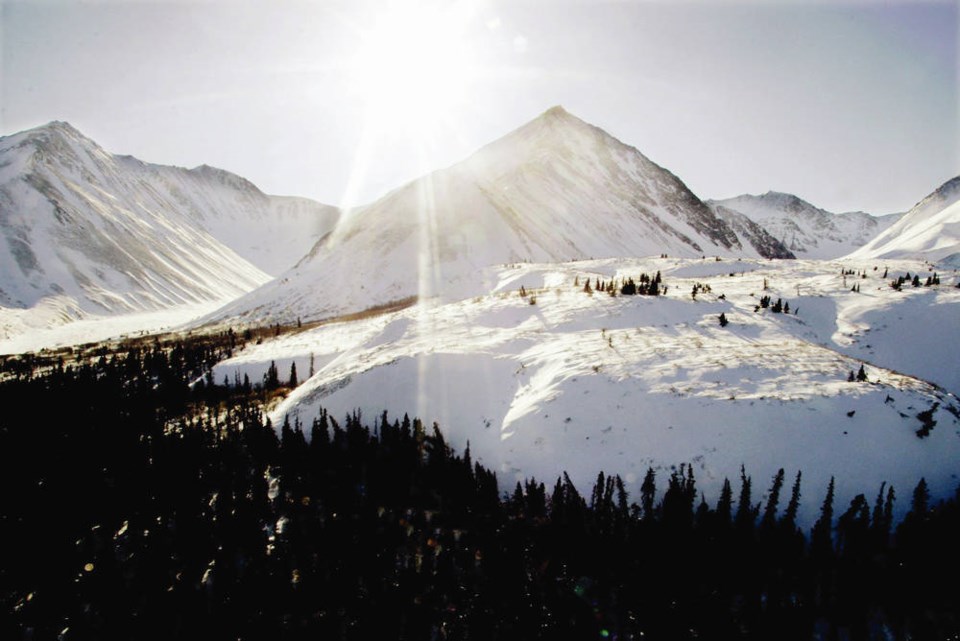Earth Day was on Thursday, but it’s not too late to acknowledge the planet by visiting and appreciating a special place outdoors.
A book that may inspire you is Park Bagger: Adventures in the Canadian National Parks by Marlis Butcher (Rocky Mountain Books Ltd., 2021.
It’s a collection of easy-to-read descriptions of Canada’s diverse ecosystems and landscapes, of flora and fauna, and the author’s adventures in all our national parks, from Quttinirpaaq — which is practically at the North Pole — to the bosky, sunlit and deciduous wildflowered woodland of Kejimkujik in the middle of Nova Scotia, to the Thousand Lakes on the St. Lawrence River, to the whispering, spiritual grasslands of southern Saskatchewan and, of course, to the misty beaches and cedar rainforests of the Pacific Rim here at home. Along with all that, there is an interesting map and a selection of photos.
Sable Island is a wild, treeless sandy crescent of grasses, wind-whipped by sea storms, about 160 kilometres off the coast of Nova Scotia. It is known primarily for two things – shipwrecks due to the violent Atlantic Ocean tempests on the hidden shallow sand bars, and the feral horses that freely roam the island and manage to live only on the salty, stunted shrubbery.
The horses were abandoned many years ago when the original French settlers (Acadians) were driven out by the British. The island is unusually protected; visitors must observe from boats, and even scientists are restricted from journeying across the dunes.
Point Pelee on Lake Erie runs along the southern fringe of Ontario and is on the monarch butterfly migration route. The park is also part of the Carolinian forest — a rare woodland of chestnuts, butternuts, tulip trees, black walnut, and red mulberries.
“And that’s where we found countless monarch butterflies silently flitting about,” writes the author. “These beautiful large insects were everywhere, their distinctive orange and black wings contrasting with the blue sky, green trees and purple asters along the footpaths. We had to be careful not to step on the ones resting on the ground”
Here in British Columbia, the Gwaii Haanas Reserve is a group of forested islands south of Haida Gwaii where the author spent several wet drizzling days kayaking, camping and meeting bears ambling and foraging in the low ocean mists amongst waist high salal.
“Gwaii Haanas” means “islands of wonder” and indeed it was when the clouds lifted briefly and the author was able to observe her surroundings more carefully. When she peered into the pristine shallow water at low tide, she writes, “There were bat stars – blue, red and brown ones. There was abalone, oysters, mussels, jellies and small fish … a sea cucumber, almost 45 centimetres long, slimy and brown with bright red knobs all over it.”
I have also experienced this wonder. A memory I will forever recall is the colourful and fantastical sight I saw on a reef as a child while I was on my Uncle Ted’s back — he was teaching me to swim — at Kye Bay in Comox.
I was visiting from Fredericton and had never seen anything so magnificent in my life! There beneath us in a beam of sunlight that penetrated the cool water was a magical array of glittering silvery scarlet, orange and rose-coloured creatures, huge succulent flowers, hundreds of them, all clustered together clinging to the rock. (I also remember Ted’s upper back — his skin was hairless, smooth, tanned and freckled.)
The interesting story of how this island park came to be is told in Paradise Won, The Struggle to Create Gwaii Haanas National Park Reserve by Elizabeth May (Rocky Mountain Books Ltd., 2020). If you are patient enough to learn how this (political) process of federal park designation operates from beginning to end, the frustrations, red tape and “redneck” opposition (from a newspaper titled “the Red Neck News”), the lengthy negotiations and all the highs and lows, May’s book will intrigue you.
I happen to love Elizabeth May, as did Mum — when Mum’s health was failing back in Fredericton, Elizabeth May spoke to her on the phone from my farm (I think Elizabeth had come by to purchase eggs and I had asked her: “Would you say hello to my mother? She loves you.”). Mum had never met her but admired her greatly. I recall Mum saying: “Oh that brave woman. What courage to stand up to all those men in Ottawa!”
I cannot finish without suggesting that you visit the dear little “park” and trail that surround the historic Sheringham Lighthouse in Shirley, a national heritage site designated in 2013.
There’s a lovely little informative book by Rebecca Quinn and the volunteers of the Sheringham Point Preservation Lighthouse Society (2020) on this special place, simply titled Sheringham. It’s available around town, or you can order it from www.sheringhamlighthouse.org).
Personally, I never tire of strolling along the Victoria waterfront, even on blustery winter days when the wild sea becomes that cold milky azure as it slaps the black rock. It’s a marvel, not only on Earth Day, but every day.



